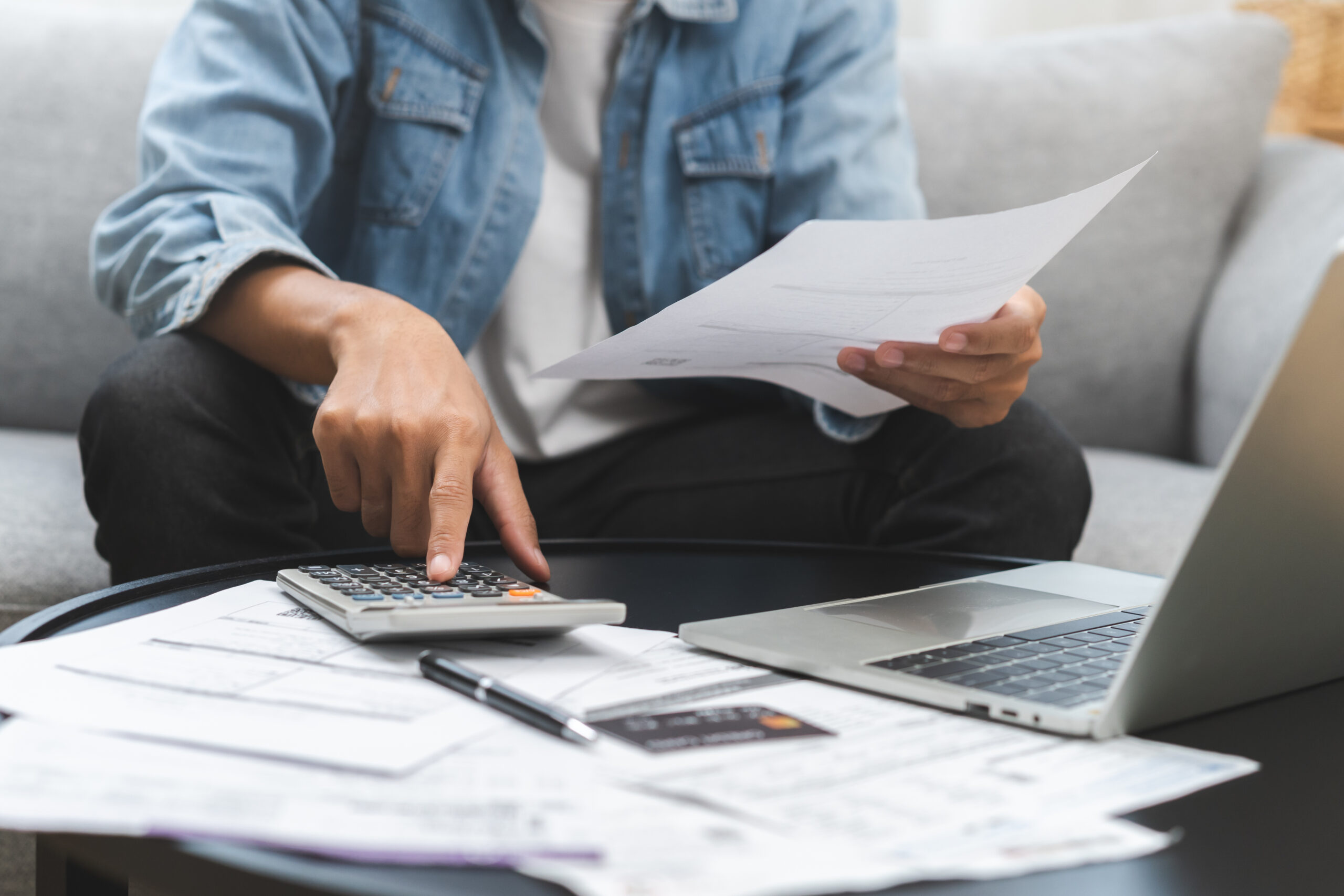This website uses cookies so that we can provide you with the best user experience possible. Cookie information is stored in your browser and performs functions such as recognising you when you return to our website and helping our team to understand which sections of the website you find most interesting and useful.
4 simple ways for self-employed people to beat tax stress in 2024/25
22nd February 2024


If you are a self-employed earner, you will likely have completed your self-assessment tax return in the last month or so.
Even if you employ an accountant to help you complete your tax return, this process can sometimes be stressful, time-consuming, and expensive for non-employed earners.
In more positive news, paying tax as a self-employed individual does not have to be as stressful as it seems. We’re here to help educate you on how to reduce your tax liability where possible, as well as ensure that you don’t leave important financial administration until the last moment.
So, here are four simple ways that self-employed people could beat tax stress in the 2024/25 financial year.
- Remember that you don’t have to wait until January to self-assess
The deadline to submit your self-assessment tax return is 31 January, in the year after the tax year you are submitting for.
However, that does not mean you need to wait until January to complete self-assessment for the previous tax year. The new tax year begins on 6 April, and after that date you are free to complete your tax return at any point until 31 January of the following year.
So, one simple way to get ahead of your tax situation might be to self-assess far before the deadline. Not only might this put less time pressure on you or your accountant, but if the bill is higher than you anticipated, you have several months to ensure it is paid off.
Plus, self-assessing in good time before the 31 January might improve your mental health too, as you may be able to get on with your year without an unpaid tax bill waiting on the horizon.
- Keep a detailed record of all your expenses
Even if a professional accountant usually sorts through your finances and helps you to complete your self-assessment, it could still help to keep highly detailed records of your expenses throughout the tax year.
Using either a spreadsheet or a physical folder, keeping an organised account of the following expenses could help to lower your tax bill for that year, and in turn, reduce your stress:
- Any vehicle expenses on business cars or vans, including fuel receipts, services, tax, and insurance
- Equipment costs
- Office or warehouse rental
- Personal items or services you may need for work, such as eye tests if you work at a screen, or work-related clothing purchases
- Business protection, such as key person insurance
- Marketing fees
- Legal and financial costs
- Childcare during work hours.
This is just a selection of the numerous expenses you could claim to reduce your taxable income for any given financial year.
Maintaining a detailed expense record could save you a stressful few days next January, and may help to lower your Income Tax bill in future.
- Make consistent pension contributions and claim tax relief on them
Unlike employed earners, self-employed individuals need to make active contributions into a Personal Pension or similar rather than being automatically enrolled in a workplace pension scheme.
This requires discipline and forward planning, and may seem challenging and stressful if you are new to being self-employed.
Indeed, even if you plan to sell or wind up your business to help fund your retirement, making personal pension contributions throughout your career could improve your retirement security.
Sadly, iSIPP research, published in a report from IFA Magazine, reveals that although self-employed pension contributions have risen by an average of £300 million a year, these individuals still “lag massively behind employees” when saving into their pensions.
So, it could be especially important to keep making proactive pension contributions in the next tax year – and remember, this could also reduce your tax bill, as pension payments can usually be deducted from taxable income during self-assessment.
What’s more, pension contributions that fall within the Annual Allowance could also benefit from tax relief.
The Annual Allowance stands at £60,000 as of the 2023/24 tax year, and is the maximum amount you can contribute to your pension in a single tax year without facing an additional tax charge. Your Annual Allowance may be lower if your income exceeds certain thresholds or you have already flexibly accessed your pension.
Employed earners usually receive automatic tax relief at the basic rate (20%) when they make contributions within the Annual Allowance, and may then claim additional relief through self-assessment. But if you’re self-employed, you need to claim all your tax relief through self-assessment.
Government tax relief essentially means that each pension contribution you make could be worth more than you put in. For instance, a £100 contribution could receive basic-rate tax relief, meaning it is now “worth” £125.
Moreover, making pension contributions and claiming tax relief on them as a self-employed earner could reduce your Income Tax liability, as well as ensure you are making the most of the retirement saving opportunities available to you.
At the end of the day, making pension contributions could help you feel calmer about your future retirement, as well as reduce the stress of facing an unnecessarily high Income Tax bill.
- Work with a Financial Planner
There are several important changes to the UK’s financial landscape happening in the 2024/25 tax year.
First of all, a number of tax allowances and thresholds are set to freeze or reduce on 6 April, including:
- The Capital Gains Tax (CGT) Annual Exempt Amount, which will decrease from £6,000 to £3,000.
- The Dividend Allowance will be reduced from £1,000 to £500.
- The Inheritance Tax (IHT) nil-rate bands are frozen until 2028.
- A few key Income Tax allowances are frozen, including the Personal Allowance, the upper income limit for the Personal Allowance, and the higher-rate Income Tax threshold.
For self-employed individuals, this might mean you carry additional responsibility to mitigate tax where you can – not just Income Tax but a range of taxations, as you read above.
What’s more, the UK is set to have a general election before 25 January 2025. Whilst there is no telling which way the pendulum will swing, new financial policies could be put into place after the election.
Finally, as the cost of living remains high for many families, self-employed earners could have many financial plates spinning at once.
As such, the 2024/25 financial year could be the ideal time for self-employed individuals to work with a Financial Planner.
We can help you look at your tax liability, plan for future mitigation where possible, and ensure your long-term retirement plans are on track too. All this could help you to reduce the stress you feel around tax, pension contributions, and long-term planning.
To learn more, email us at enquiries@pen-life.co.uk, or call 01904 661140.
Please note
This article is for general information only and does not constitute advice. The information is aimed at retail clients only.
All contents are based on our understanding of HMRC legislation, which is subject to change.
A pension is a long-term investment not normally accessible until 55 (57 from April 2028). The fund value may fluctuate and can go down, which would have an impact on the level of pension benefits available. Past performance is not a reliable indicator of future performance.
The tax implications of pension withdrawals will be based on your individual circumstances. Thresholds, percentage rates, and tax legislation may change in subsequent Finance Acts.
The Financial Conduct Authority does not regulate estate planning or tax planning.
Category: Uncategorized

